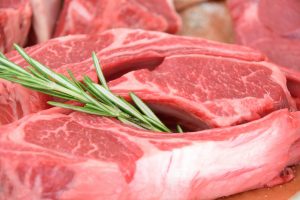The Viral Carnivore Diet: New Study Warns of Serious Kidney Risks
Published on:June 06 2025
The carnivore diet, which has surged in popularity for its supposed weight loss and mental health benefits, is now under scrutiny after a recent study linked it to a dangerous kidney condition. This diet, which eliminates all plant-based foods in favour of animal-derived products, is high in fat and cholesterol but extremely low in carbohydrates and fibre. While some followers claim it helps with weight loss and inflammation, health experts are raising alarms about its long-term safety.
What Is the Carnivore Diet?
The carnivore diet is a restrictive eating pattern that encourages people to consume only animal products—meat, eggs, and some dairy—while cutting out all fruits, vegetables, grains, and legumes. Proponents believe that by eliminating carbohydrates, the body is forced to burn fat for energy, leading to rapid weight loss. However, this approach is not in line with mainstream dietary guidelines, which recommend that 45% to 65% of daily calories come from carbohydrates.
A new study, published in The American Journal of Clinical Nutrition, has highlighted the potential dangers of the carnivore diet, particularly the increased risk of developing kidney stones. The study followed a 68-year-old man who adopted the diet after learning about it on YouTube. Although he lost significant weight, medical tests a year later revealed the early stages of kidney stone formation. He was found to be at risk for all three major types of kidney stones: calcium oxalate, calcium phosphate, and uric acid stones. Fortunately, after discontinuing the diet, his kidney health improved, and he was free of stones a year later.
 Researchers explained that the high intake of animal protein, combined with the exclusion of dairy, fruits, and vegetables, creates an environment in the body that is ideal for kidney stone formation. The lack of fibre and essential nutrients further exacerbates the risk. The study’s authors also warned that the lack of scientific literature on the safety and efficacy of such fad diets should concern both the public and healthcare professionals, especially as social media continues to fuel their popularity.
Researchers explained that the high intake of animal protein, combined with the exclusion of dairy, fruits, and vegetables, creates an environment in the body that is ideal for kidney stone formation. The lack of fibre and essential nutrients further exacerbates the risk. The study’s authors also warned that the lack of scientific literature on the safety and efficacy of such fad diets should concern both the public and healthcare professionals, especially as social media continues to fuel their popularity.
The Impact of Excess Protein on Kidneys
According to Harvard Health, consuming too much animal protein—such as red meat, poultry, eggs, and seafood—can increase the risk of kidney stones, particularly in those already prone to them. In contrast, a diet rich in fibre from plant-based foods supports gut health and may help prevent kidney stones.
Kidney stones are hard deposits of minerals and salts that form inside the kidneys. While many stones pass naturally through urine, the process can be extremely painful. In severe cases, large stones can block urine flow, leading to infections or even life-threatening complications like sepsis.
Beyond kidney stones, the carnivore diet’s high saturated fat content can raise LDL (bad) cholesterol levels, increasing the risk of heart disease and stroke. Processed meats, which are often included in this diet, are also high in salt, potentially raising blood pressure.
While the carnivore diet may promise quick results, the risks—especially to kidney health—are significant. Experts recommend a balanced diet that includes a variety of plant-based foods to ensure adequate intake of fibre, vitamins, and minerals. Before making drastic changes to your eating habits, it is always best to consult a healthcare professional.
The Viral Carnivore Diet: New Study Warns of Serious Kidney Risks






